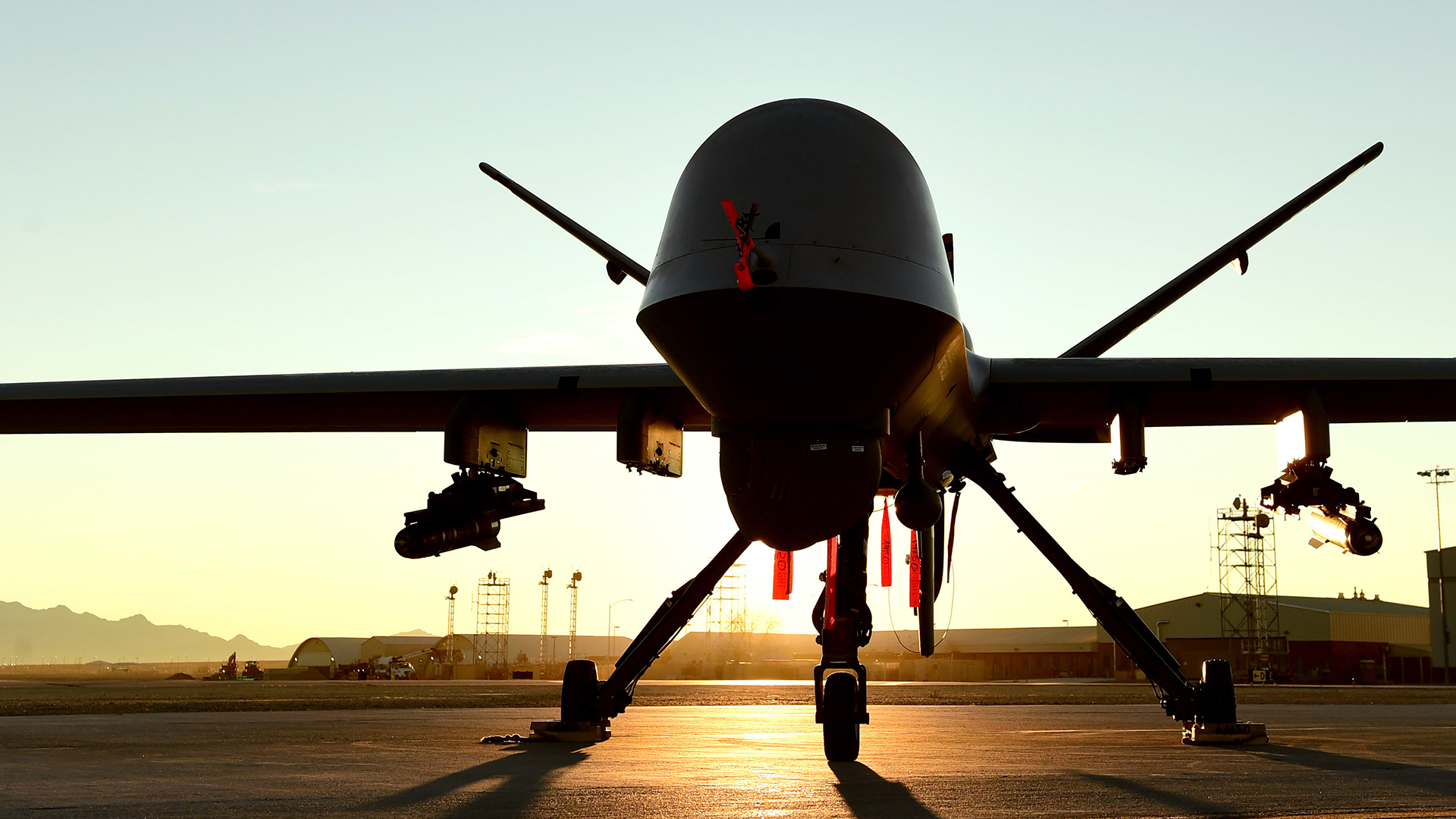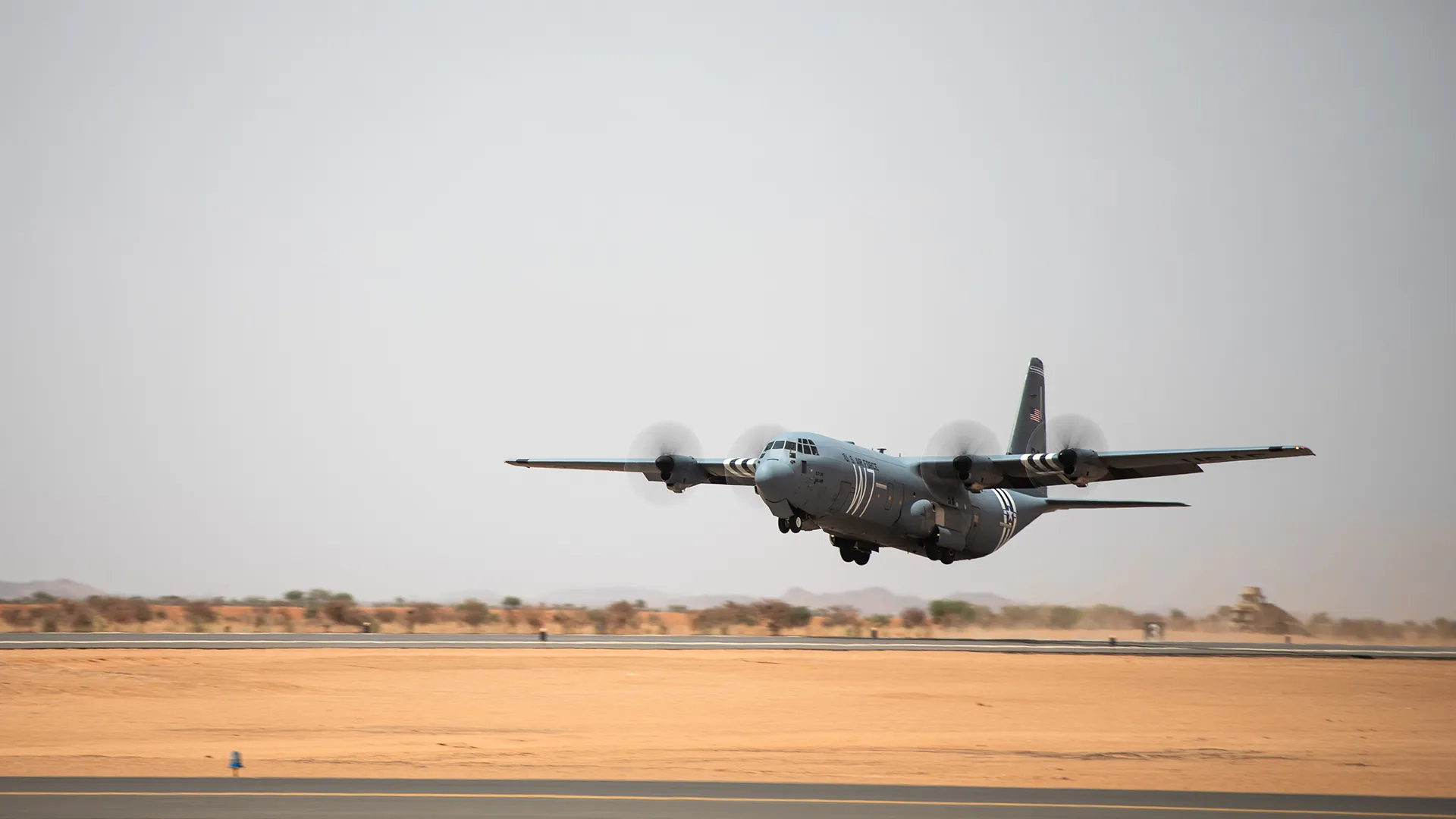

The U.S. military has resumed flying some drone operations out of its two bases in Niger to protect the roughly 1,100 American troops deployed to the country, a defense official said.
“We can confirm that U.S. forces in Niger commenced ISR [intelligence, surveillance, and reconnaissance] flight ops to monitor for threats for purposes of force protection,” the official told Task & Purpose. “We have secured approvals from appropriate authorities. The United States always reserves the right to conduct operations to protect our forces and personnel, if required.”
So far, the U.S. military has not resumed counter-terrorism operations in Niger or its assistance to the Nigerien military, the official said.
U.S. Africa Command, or AFRICOM, is currently reviewing how many service members it needs in Niger for the mission there, said Kelly Cahalan, an AFRICOM spokeswoman. No decisions have been made yet on future force levels in Niger.
Subscribe to Task & Purpose Today. Get the latest military news and culture in your inbox daily.
Niger’s military overthrew the country’s democratically elected president on July 26. So far, the U.S. government has not described the military takeover as a “coup,” which would end American economic and security assistance to Niger.

The military junta now running Niger initially closed the country’s airspace following the coup, preventing the U.S. military from flying missions from its two bases in the country: Air Base 101, out of Niger’s capital of Niamey; and Air Base 201, near Agadez that cost $110 million to build.
Until the military coup, Niger had been an important partner in the U.S. military’s operations against al-Qaida and the Islamic State group in the Sahel region of Africa.
Air Base 201 near Agadez has played a critical role in the U.S. military’s efforts to counter violent extremist groups in West Africa, Jocelyn Trainer, an expert on sub-Saharan Africa, told Task & Purpose for a previous story.
“The U.S. military relies on the base to serve as an intelligence and surveillance hub and launch pad for drones at a time when violent extremism is spreading across the Sahel,” said Trainer, with the Center for a New American Security think tank in Washington, D.C. “With a limited U.S. base presence in Africa – restricted to Djibouti and Niger – losing access to Base Aerienne 201 would be a detrimental blow to U.S. and African joint efforts to counter violent extremist groups connected to the Islamic State and Al-Qaeda operating in the area.”
On Wednesday, the commander of U.S. Air Forces in Europe and Air Forces Africa told reporters the U.S. military had begun flying drones and manned aircraft from both bases in Niger within the past couple of weeks as a result of diplomatic engagement between the American and Nigerien governments.

“For a while, we weren’t doing any missions from the bases,” Air Force Gen. James Hecker said during a media roundtable at the Air Force Association’s annual Air, Space, and Cyber conference. “They pretty much closed down the airfields. Through the diplomatic processes that I just talked about, we are now doing – I don’t want to say 100% of missions that we were doing before – but we are doing a large number of missions that we were doing before.”
The U.S. military has also moved some personnel and equipment from its base in Niamey to the base near Agadez, which is more secure, Hecker said.
“We hope that that’s going to be maybe a temporary thing and things will calm down, as they appear to be, and then we can move back,” Hecker said.
One drawback of flying missions out of Air Base 201 is that drones have to fly further, so they can spend less time observing a specific area, he said.
Hecker confirmed that the U.S. government is looking at possibly partnering with other African countries in the region to conduct drone operations, but he did not say which ones.
“We’ll see how this happens in Niger, but it looks like the diplomatic solution is going pretty well,” Hecker said. “This could change tomorrow.”
The latest on Task & Purpose
- Boot camp obstacle course was no problem for 4-foot-7-inch Marine
- Army’s pre-boot boot camp to become permanent
- Navy commander fired for “loss of confidence”
- Marine vet charged with false Purple Heart claim, benefits fraud
- Three Navy SEAL commanders face charges in Hell Week death